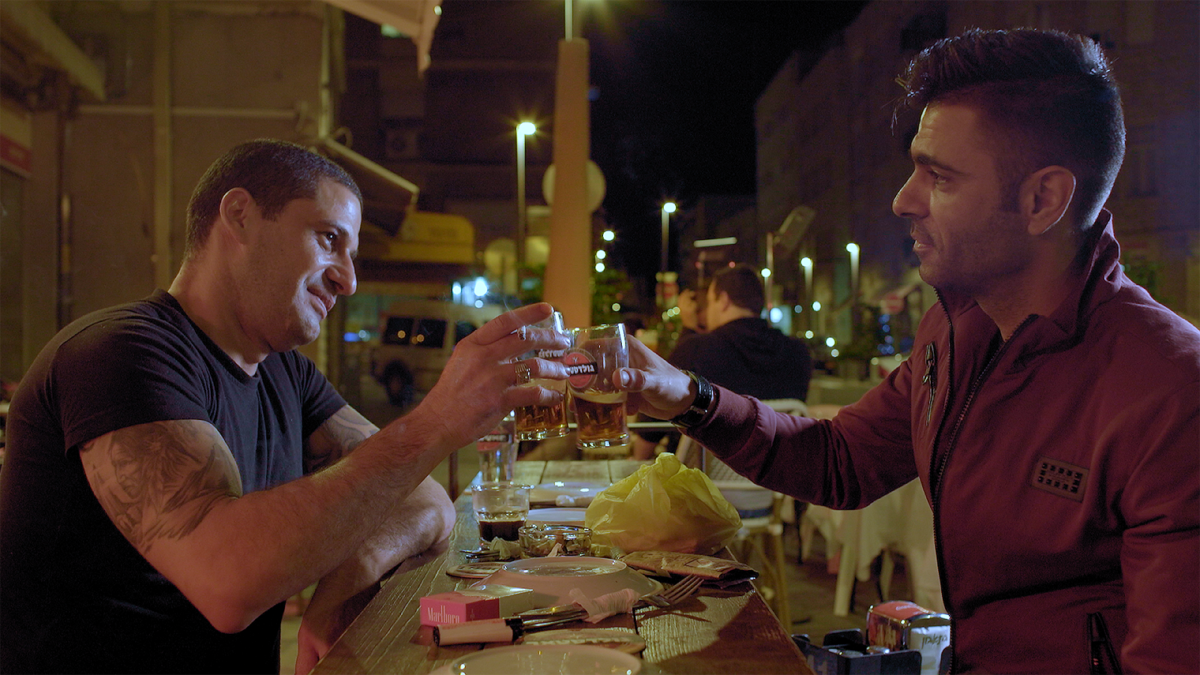Israeli Arab chef Nof Atamna-Ismaeel passionately believes that food is the first step toward achieving coexistence between Jews and Arabs in Israel.
As she says, “There is no room for politics in the kitchen.”
Personable and outgoing, she is at the center of Breaking Bread, an uplifting documentary by Beth Elise Hawk scheduled to be screened at the online autumn edition of the Toronto Jewish Film Festival, which runs from October 22 to November 1.
Atamna-Ismaeel was born and raised in the Israeli Arab town of Baka al-Gharbiya, near the port of Haifa. Her father was a physician and her mother was a Hebrew language teacher. Unlike the vast majority of Arabs in Israel, she studied at a Jewish school. She speaks Hebrew fluently and idiomatically.
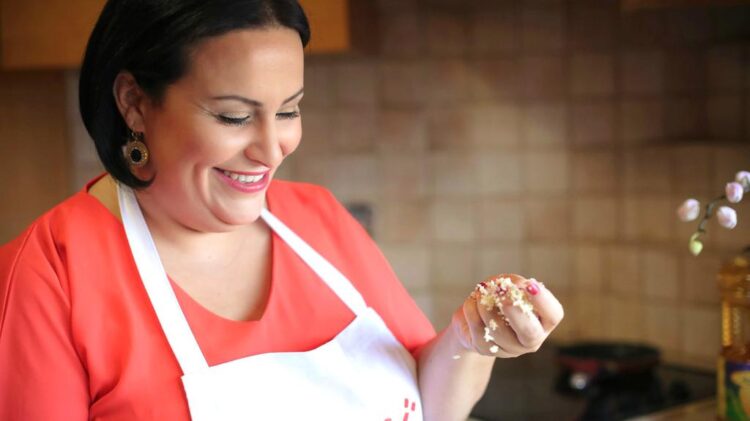
A microbiologist, mother of three and foodie, she won the Master Chef contest on Israeli television in 2014, the first Muslim recipient of that coveted award.
A year later, she and an Israeli Jewish colleague founded the A-Sham Arab Food Festival in Haifa, an annual three-day event that celebrates the glories of Arabic cuisine and brings together Israeli Arabs and Jews in gastronomic harmony.
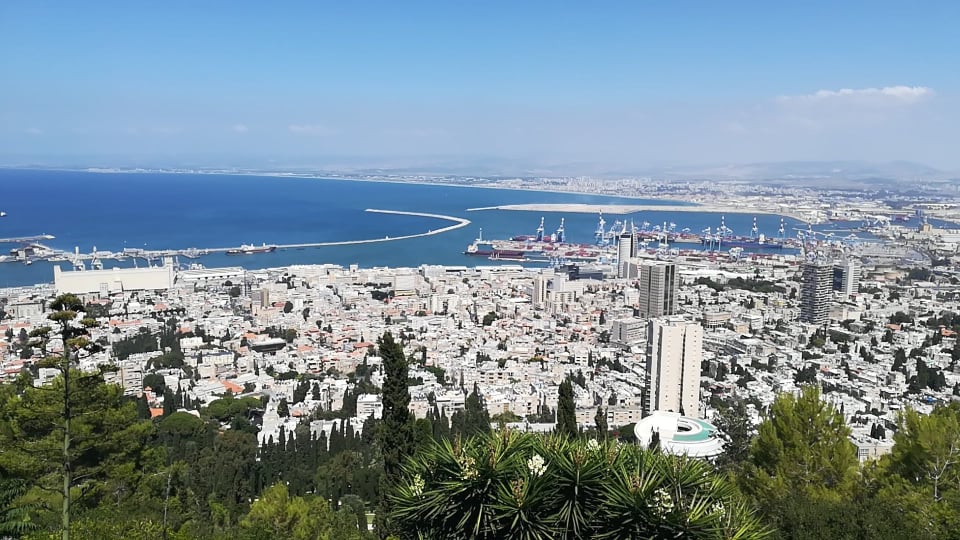
That Haifa was chosen as its venue is hardly coincidental. A fairly substantial proportion of its population consists of Muslim and Christian Arabs, the descendants of Palestinians who did not leave their homes as refugees during the 1948 Arab-Israeli war.
Hawk’s film is dedicated to the proposition that food and politics do not mix, particularly in a country as polarized along ethnic, religious and national lines as Israel.
Although she seems like an idealist, Atamna-Ismaeel is under no illusion that food can break down rigid political barriers between the Jewish majority and the Arab minority in Israel. But she definitely believes that incremental change is possible if people of goodwill reach out to build bridges of mutual understanding.
Breaking Bread is mostly about the Jewish and Arab chefs who have taken part in the A-Sham Arab Food Festival, which has the full endorsement of Haifa’s mayor.
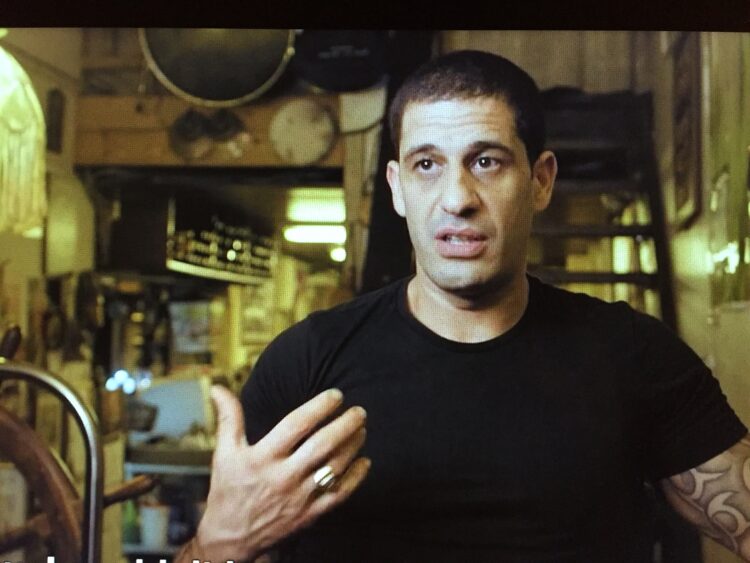
Lior Meir cooks East European food in the Haifa restaurant he inherited from his father and grandfather, both of whom have been his role models. He and Ali Khattib, a Muslim from the Golan Heights village of Ghatar, join ranks to create a scrumptious dish that Khattib’s grandmother created.
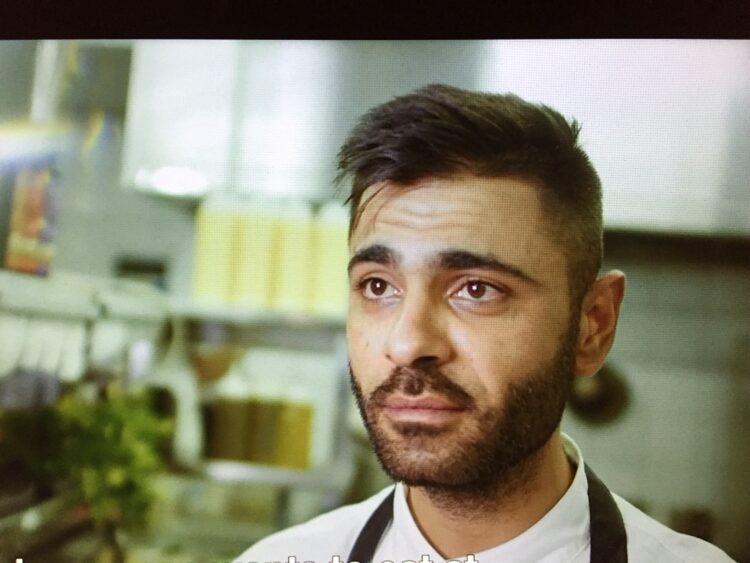
Osama Dalal, a resident of the mixed Jewish-Arab town of Acre, specializes in Palestinian-style seafood. Readily crediting his grandmother for much of his culinary knowledge, he opened his first restaurant five years ago.
Ilan Ferron, a half-Jewish, half-Christian chef, started his restaurant in a dilapidated Haifa neighborhood that is undergoing gentrification.
Fadi and Shoshi Karaman, an Arab-Jewish couple, convey the message that coexistence should be the goal of all Israelis.
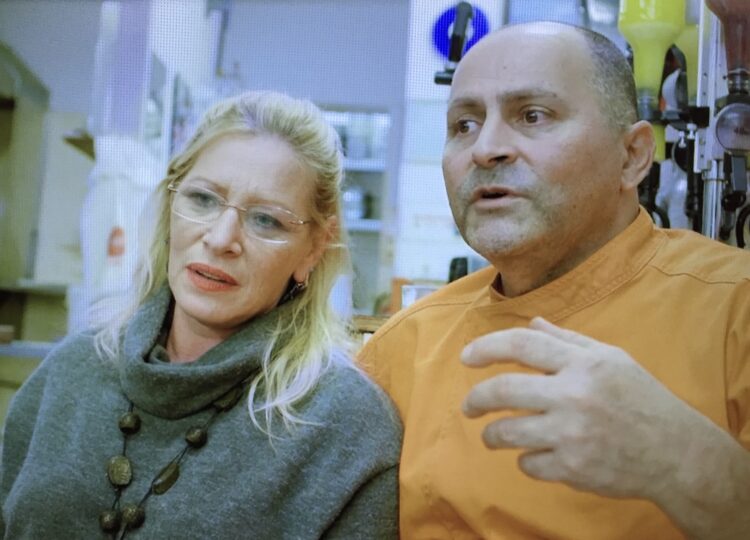
Tomer Abergel, a Jew of Moroccan descent from Haifa, and Salah Cordi, an Arab from Jaffa, are profiled as well.
Convinced that 90 percent of Jews and Arabs want to coexist, Atamna-Ismaeel says they both like fresh, spicy food flavored by herbs and spices.
The food that is featured in Breaking Bread is alluring.
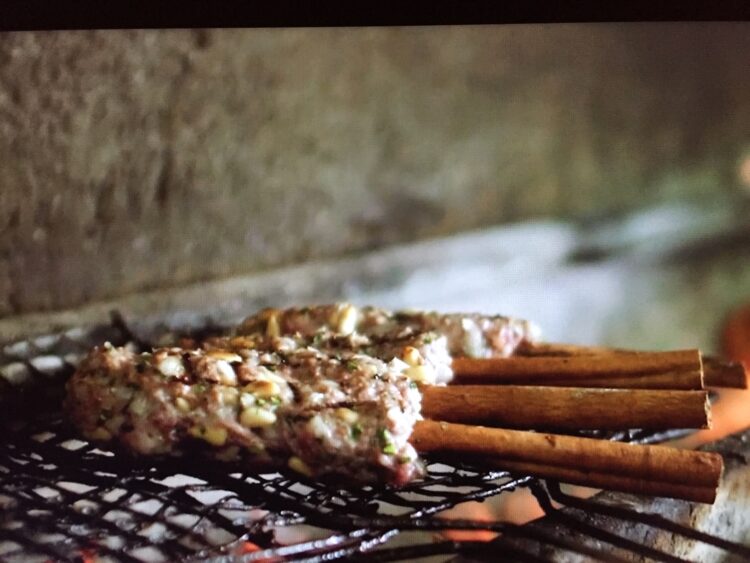
The camera pans on lamb dumplings, one of Atamna-Ismaeel’s specialties; a plate of creamy hummus coated with a thin layer of olive oil; Levantine kebobs on cinnamon sticks; an Israeli/Arab salad, a melange of finely chopped tomatoes, cucumbers and onions sprinkled with herbs and dressed with a heady vinaigrette; mussakhan, a classic chicken, rice and onion dish, and kanafeh, a famously rich dessert topped with crushed pistachio nuts.
These, among others, are the delectable dishes that attract Jews and Arabs to Haifa’s A-Sham Arab Food Festival.
